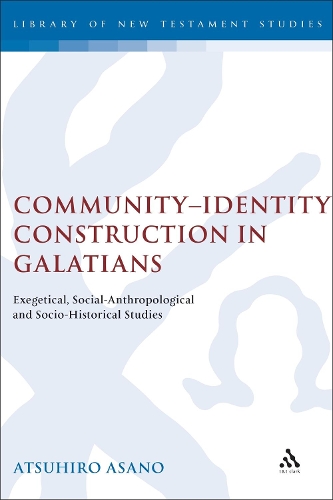
Community-Identity Construction in Galatians: Exegetical, Social-Anthropological and Socio-Historical Studies
(Hardback)
Publishing Details
Community-Identity Construction in Galatians: Exegetical, Social-Anthropological and Socio-Historical Studies
By (Author) Professor Atsuhiro Asano
Bloomsbury Publishing PLC
T.& T.Clark Ltd
17th May 2005
United Kingdom
Classifications
General
Non Fiction
227.406
Physical Properties
Hardback
284
Width 156mm, Height 234mm
570g
Description
The issue of community-identity construction in Galatians is considered using two methods: first, by applying anthropological theories to the mechanism and natures of community-identity and its construction, and second, by comparing the Galatian community with another minority religious community. Asano argues that Paul's effort at identity construction is partially conditioned by his self-awareness as an autonomous apostle and by the external pressures of the significant groups elsewhere. Paul's conflict, depicted in Galatians 2 and projected upon the Galatian situation, is understood as a conflict between the ethno-centred and the 'instrumental mode' of community constructions, the latter of which is free from the constraints of core ethnic sentiment. Galatians 4.21-31 is identified as a conceptual framework (or 're-created worldview') for the community members to be assured of their authentic existence under marginalizing pressure. This re-created worldview is ritually acted out in baptism with the egalitarian motif (Galatians 3.28) to help internalize the authentic identity. Finally, Paul's letter is suggested to have functioned as a physical locus of community-identity. Thus the autographic marker (Galatians 6.11) directs the attention of the audience not only to the conceptual content but to the presence of the founding apostle that the letter replaces.
Author Bio
Atsuhiro Asano is Professor of New Testament Studies in the Department of Theology at Kwansei Gakuin University, Japan.
